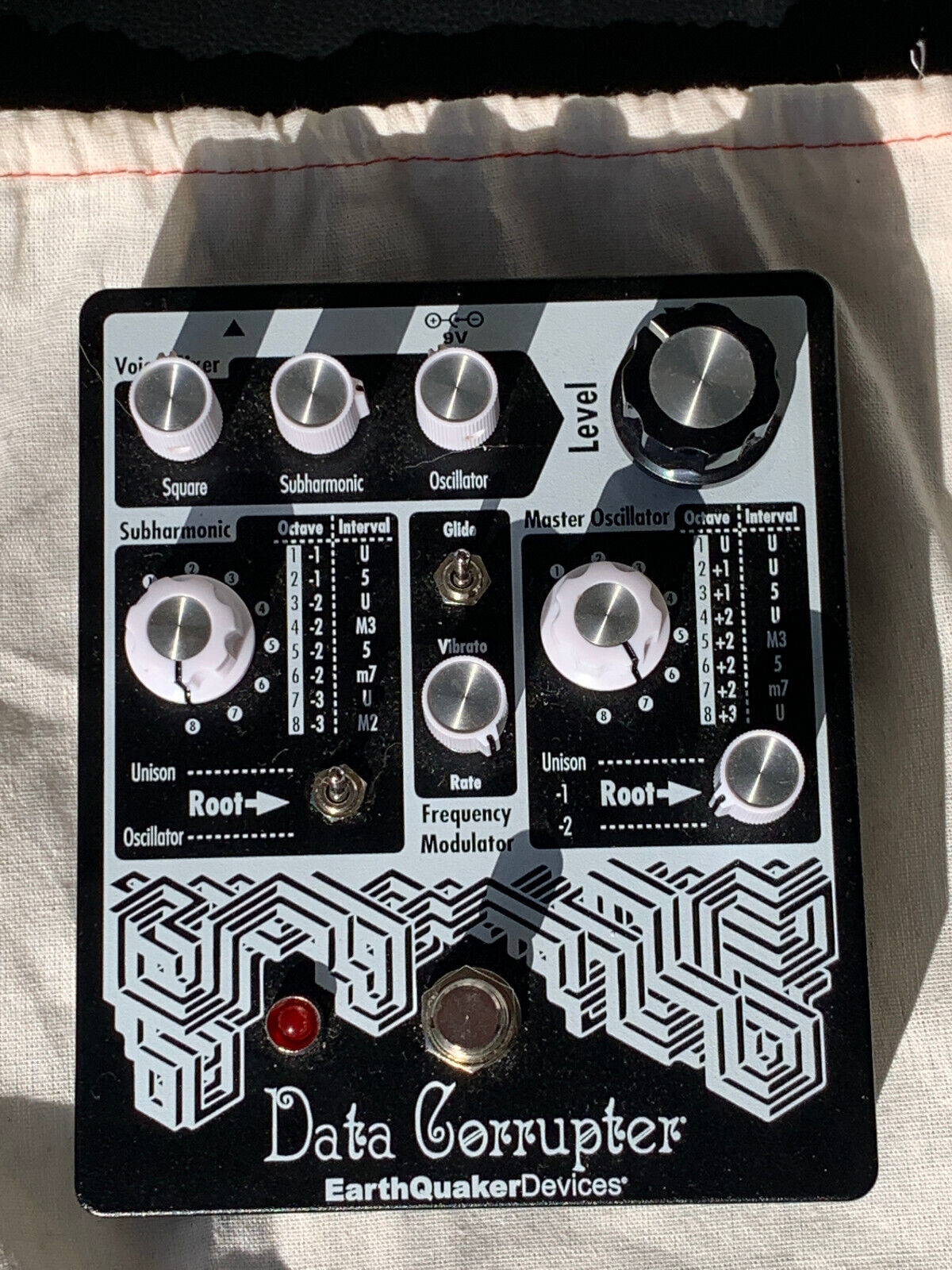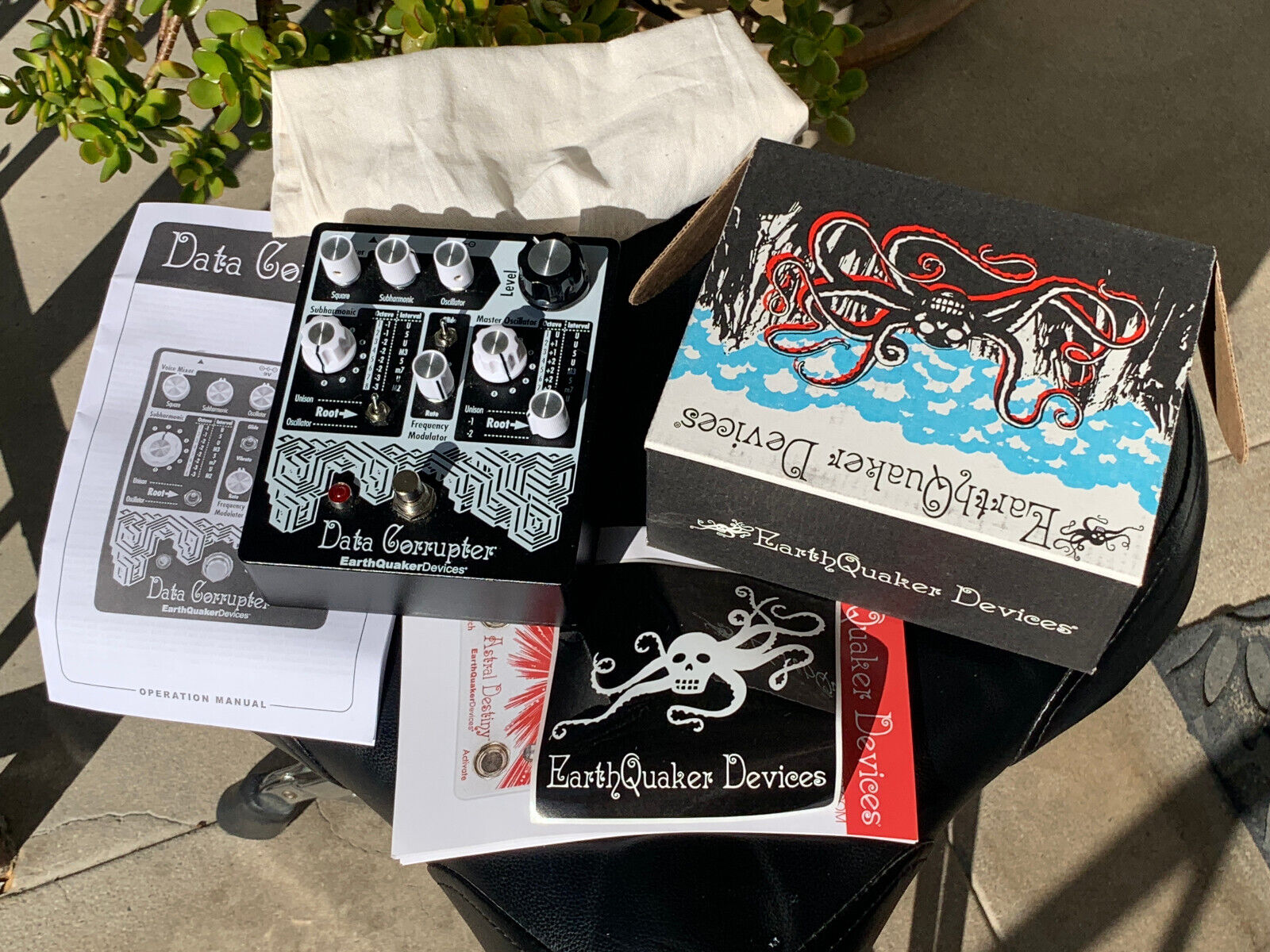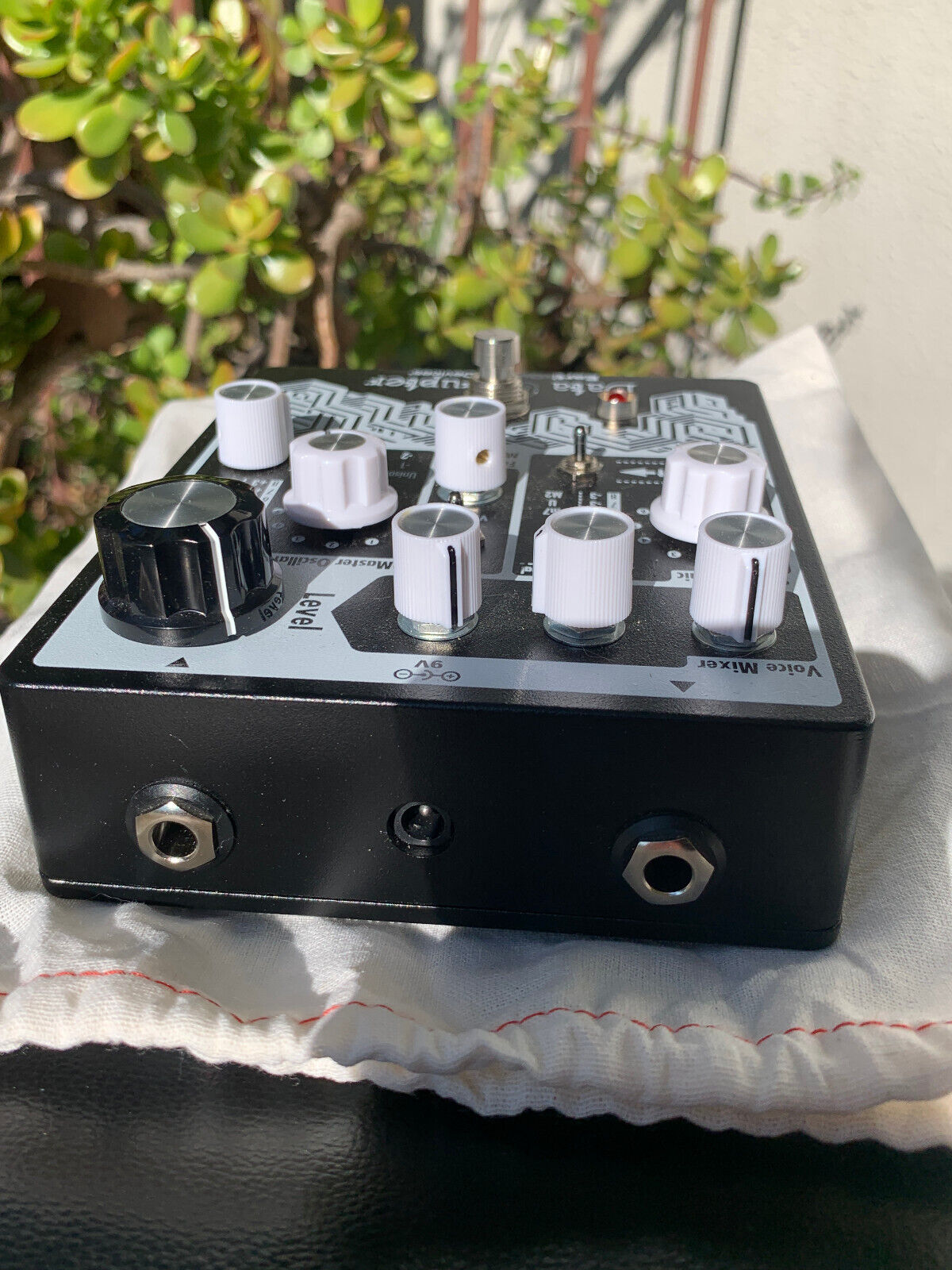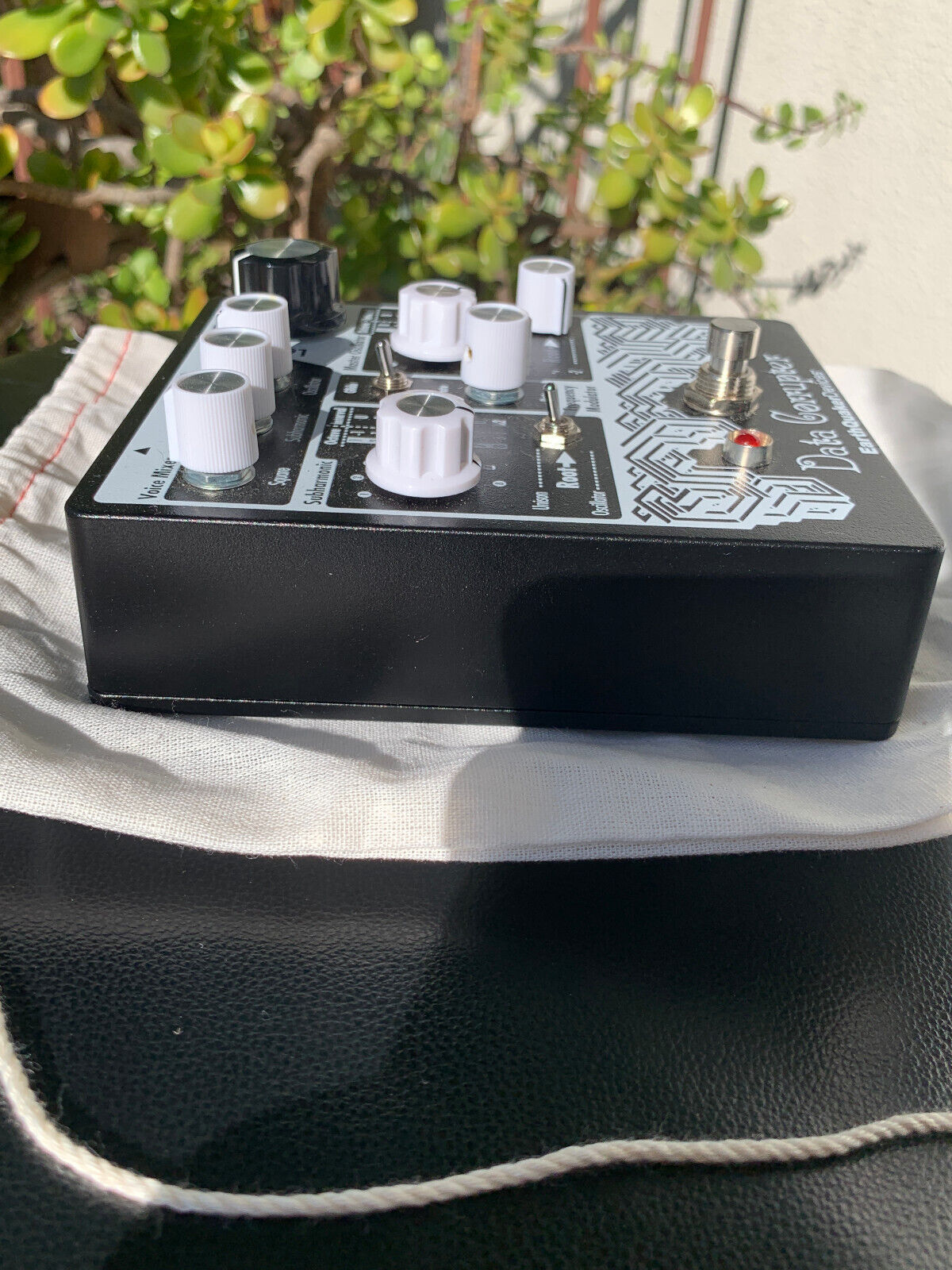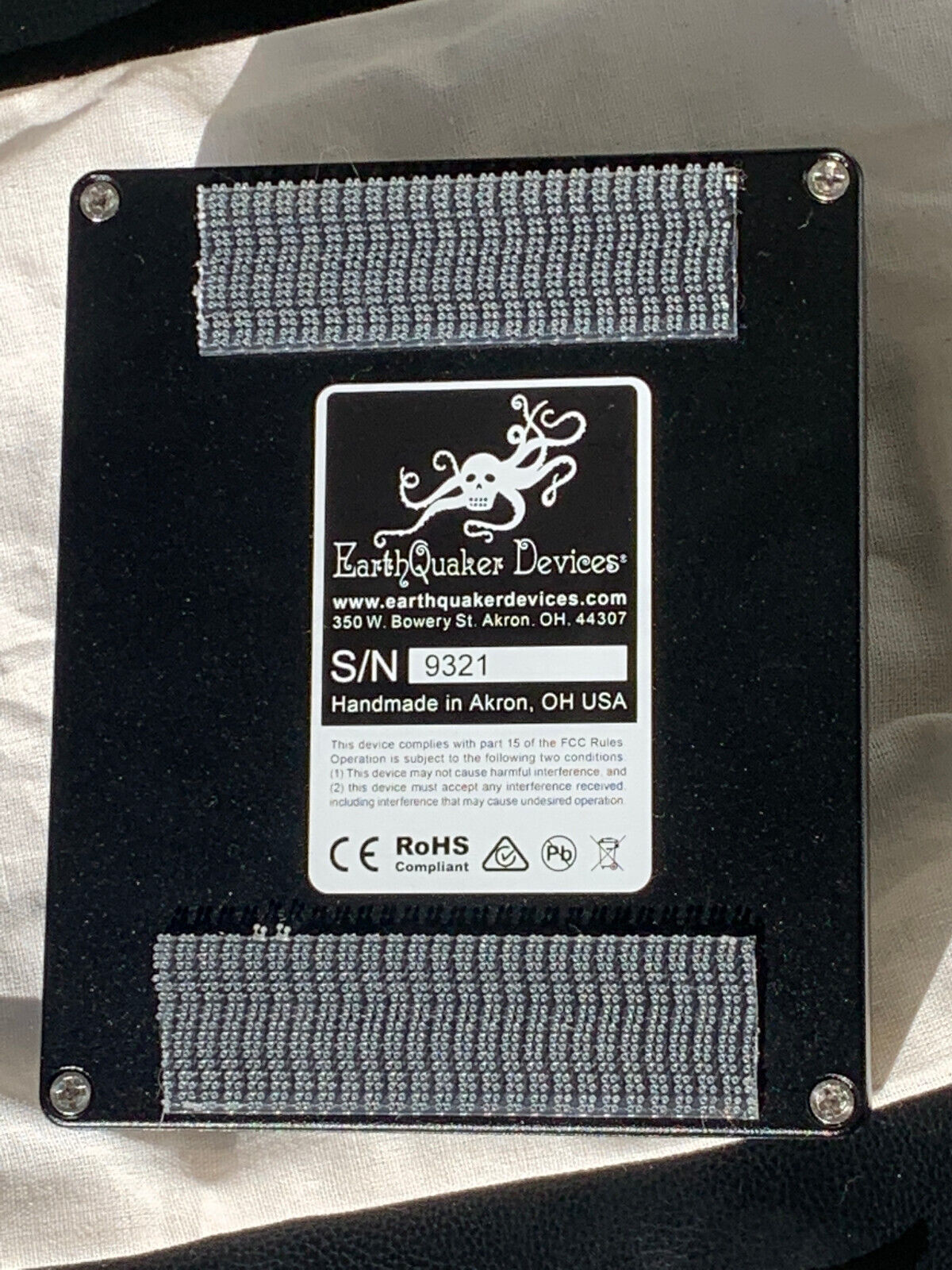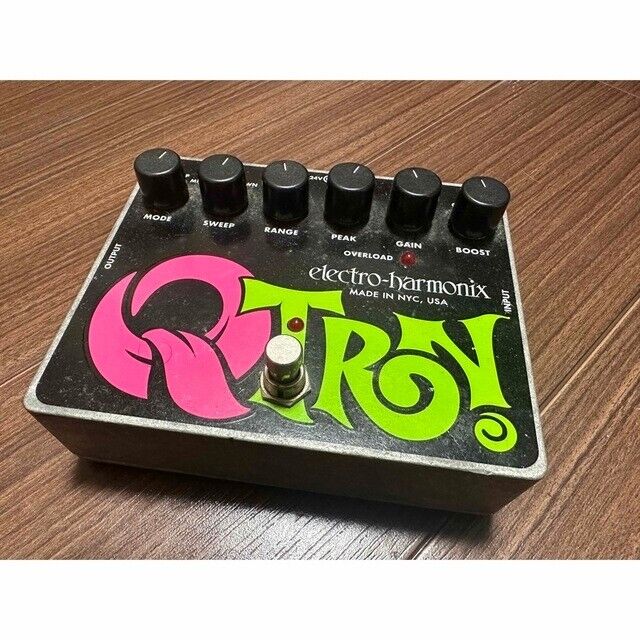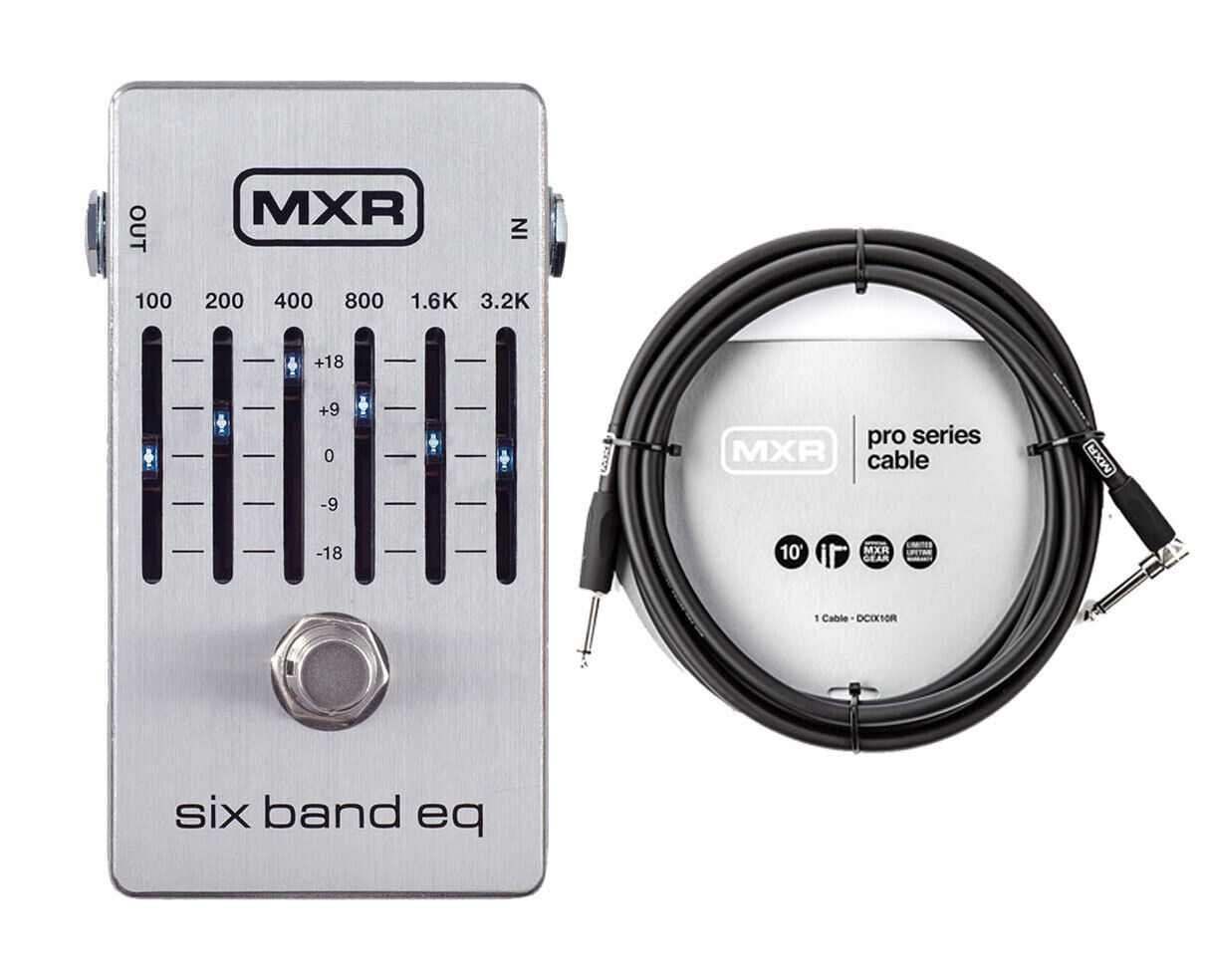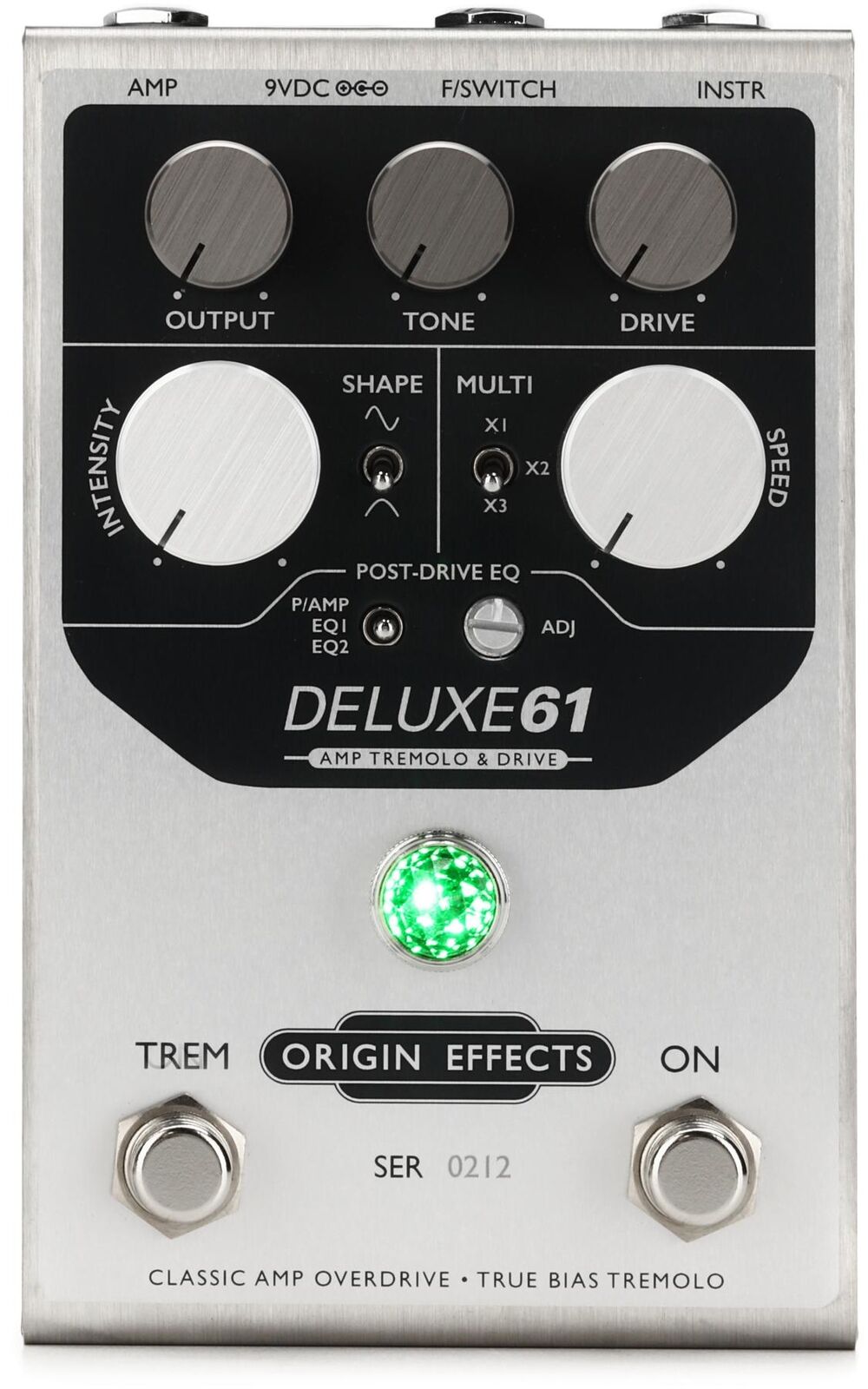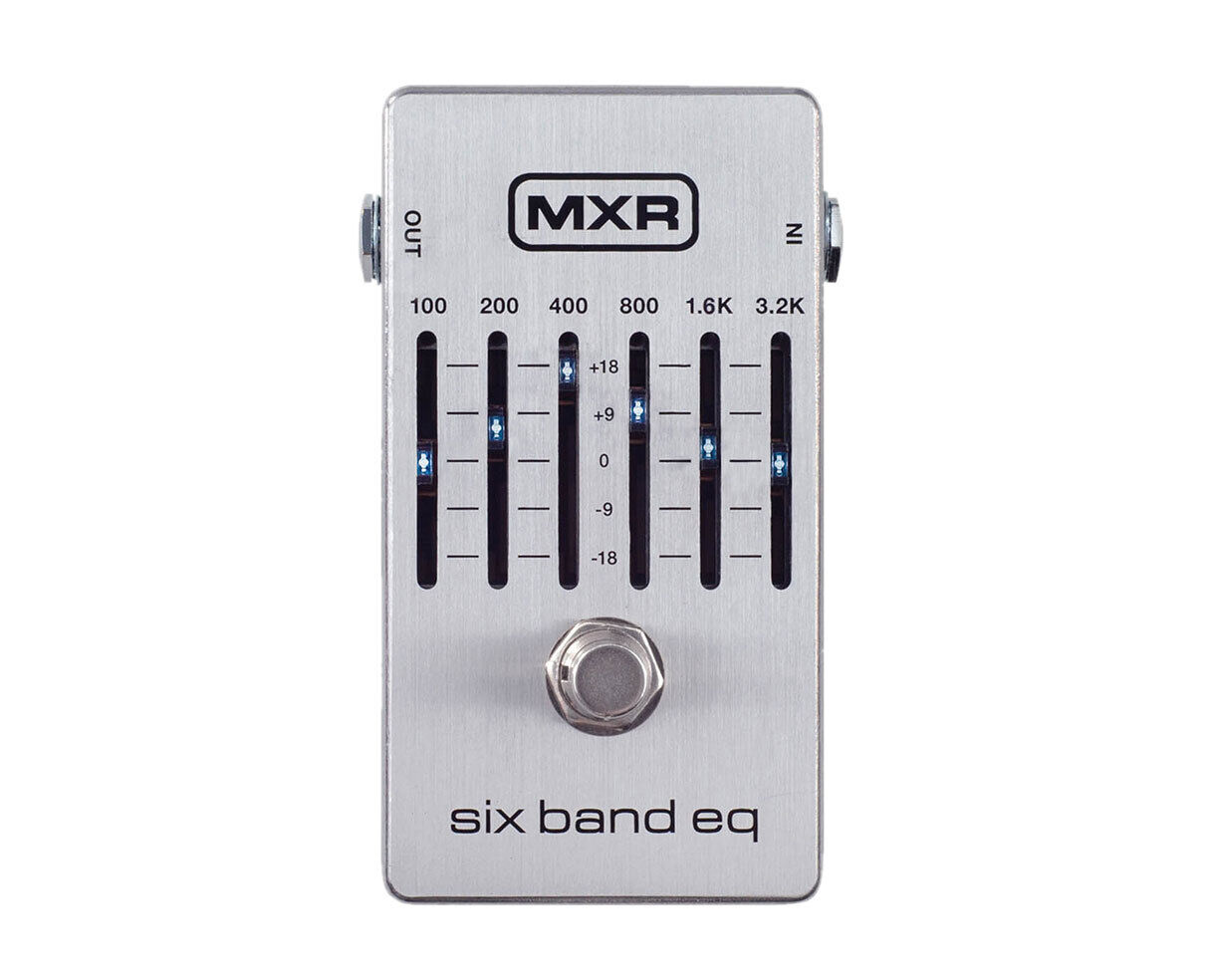-40%
Earthquaker Devices EQD Data Corrupter Harmonizing PLL Guitar Effect Pedal
$ 81.84
- Description
- Size Guide
Description
Wildly creative pedal with tons of sonic options and independent controls. Can be used as a fuzz, synth, octave, bit crusher, and more. Many knobs providing tons of discrete control over parameters. I had it running in the Boss SY-1 FX loop for some otherworldly synth tones. Have to sell it because I'm playing much less experimental music these days and don't have room on my board.From Earthquaker website:
The Data Corrupter is a monophonic analog harmonizing PLL with modulation. It takes your input signal and brutally amplifies it into a crushing square wave fuzz tone that is then multiplied, divided and modulated to create a wild, yet repeatable, three-voice guitar synthesizer.
The Master Oscillator is the central nervous system at the heart of the Data Corrupter’s cyberpunk hive mind. It feeds your input to the signal harvester in its original octave (Unison), one octave down (-1) or two octaves down (-2) for maximum compatibility with your preferred instrument and frequency register. Once you’ve chosen your input octave, then the Data Corrupter will perform its calculations and spit out an analog synthesized frequency, which can be pitch-bent for portamento or vibrato sounds by the Frequency Modulator! From there, you can blend in one of eight Subharmonic intervals up to three octaves below the input and mix in a square wave fuzz tone for maximum data corruption.
The
Master Oscillator (1)
is the central nervous system at the heart of the Data Corrupter’s cyberpunk hive mind. The three-position switch on the
Master Oscillator
control panel labeled
Root
feeds your input to the signal harvester in its original octave (Unison), one octave down (-1) or two octaves down (-2). Use the
Master Oscillator’s Root Switch
to fine tune the Data Corrupter’s tracking response for maximum compatibility with your preferred instrument and frequency register. Once you’ve chosen your input octave, the Data Corrupter will perform its calculations and spit out a synthesized frequency, the octave and/or interval of which may be selected via the
Master Oscillator’s
eight-position rotary switch.
The
Voice Mixer’s Oscillator Control (2)
adjusts the
Master Oscillator
blend.
The
Frequency Modulator (3)
applies pitch-bend modulation to the
Master Oscillator
. In
Glide
mode, you’ll hear a smooth portamento as each note slides into the next. In
Vibrato
mode the pitch modulates up and down for a retro sci-fi laser effect.
The
Subharmonic (4)
assimilates the input signal into one of eight lower octave programs between one and three octaves below the original. For a more stable lower octave, set the
Subharmonic’s Root Switch
to the
Unison
position, which divides the Square Wave input signal, and removes the
Frequency Modulator
from the
Subharmonic
signal path.
To unleash the cracked machine lurking within the mainframe, set the
Subharmonic Root Switch
to
Oscillator
and try not to look away as the sonic malware you just installed mangles your input signal into the sum and difference of both the
Master Oscillator
and
Subharmonic
with the
Frequency Modulator
applied to the upper and lower octaves.
If you think you’re brave enough, set the
Subharmonic Root Switch
to
Oscillator
and try experimenting with different
Master Oscillator
and
Subharmonic
programs to wind up the doomsday clock and inch ever closer to the Singularity. Adjust the
Voice Mixer’s Subharmonic Control
to set the lower octave volume.
Finally, (or is it?) the
Square (5)
control located top-left on the
Voice Mixer
blends in a fuzzed-out square-wave take of your input in its original octave. That’s it. These aren’t the droids we’re looking for. Move along.
Nerd Talk
The heart of this pedal is based around a CMOS Phase Locked Loop (PLL) IC. In a nutshell, the PLL takes your input signal and compares its phase and frequency against an oscillator, generates an output proportional to their difference then feeds it back to the oscillator. This then causes the oscillator to lock onto the input signal and generate a synthesized frequency. Pretty cool, right? This synthesized frequency is referred to as the Master Oscillator on the Data Corrupter.
Design Notes
This device takes its inspiration from the Electrax Synthax and the “Basic Frequency Synthesizer” by Ray Marston. Neither of these were really intended to be guitar effect pedals and a lot of work went into creating the Data Corrupter to provide excellent tracking and long sustain. We think you’ll find it more expressive and accurate than pretty much any other PLL based effect pedal around.
Tech Spec
Dimensions:
5.65 x 4.75 x 2.25 in. (144 x 121 x 57 mm) with knobs
Current Draw:
26 mA
Input Impedance:
1 MΩ
Output Impedance:
<1 kΩ
Flexi-Switch® Technology
This device features Flexi-Switch® Technology! This relay-based, true bypass switching style allows you to simultaneously use momentary and latching style switching.
For standard latching operation, tap the footswitch once to activate the effect and then tap again to bypass.
For momentary operation, hold the footswitch down for as long as you’d like to use the effect. Once you release the switch the effect will be bypassed.
Since the switching is relay based, it requires power to pass signal.
Power
This device takes a standard 9 volt DC power supply with a 2.1mm negative center barrel. We always recommend pedal-specific, transformer-isolated wall-wart power supplies or multiple isolated-output supplies. Pedals will make extra noise if there is ripple or unclean power. Switching-type power supplies, daisy chains and non-pedal specific power supplies do not filter dirty power as well and let through unwanted noise.
DO NOT RUN AT HIGHER VOLTAGES!
